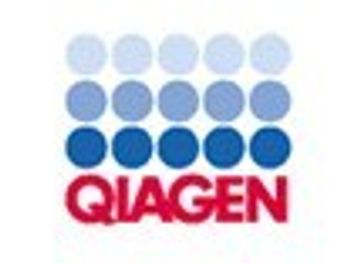
- U.S. launch of therascreen EGFR RGQ PCR Kit (therascreen EGFR test) follows FDA approval of system to select non-small cell lung cancer (NSCLC) patients eligible for treatment with GILOTRIF™ (afatinib)
- therascreen EGFR test addresses high volume, high value need with the broadest coverage of validated mutations
- Patients and healthcare providers benefit from reliable FDA-approved companion diagnostic to guide the use of new therapy targeting patients with EGFR gene mutations
- Laboratories gain additional content for high performance Rotor-Gene Q MDx
QIAGEN N.V. announced it has received approval by the U.S. Food and Drug Administration (FDA) to market the therascreen EGFR test as a companion diagnostic to guide the use of Boehringer Ingelheim's new targeted therapy, GILOTRIF™ (afatinib), for treatment of metastatic NSCLC in patients whose tumors have certain EGFR gene mutations. More than 200,000 new lung cancer cases are diagnosed every year in the United States, with NSCLC accounting for approximately 85% of cases, leading to an estimated 160,000 deaths.
The therascreen EGFR test enables doctors to identify EGFR mutation-positive patients eligible for treatment with GILOTRIF™ (afatinib). The FDA approval of the therascreen EGFR test marks a further milestone in the global expansion of QIAGEN's Personalized Healthcare franchise - and adds a third FDA-approved or cleared diagnostic kit to run on QIAGEN's efficient Rotor-Gene Q MDx. Approximately 120,000 metastatic NSCLC patients each year in the U.S. could benefit from testing for EGFR mutations, a total potential testing market of about $35 million, according to QIAGEN estimates.
"We are very pleased to receive approval to market our therascreen EGFR test in the United States, a successful outcome from our collaboration with Boehringer Ingelheim. QIAGEN's companion diagnostics are transforming patient care and extending lives around the world by providing personalized genomic information to guide treatment decisions," said Peer M. Schatz, Chief Executive Officer of QIAGEN N.V. "The U.S. launch of the therascreen EGFR test adds to our growing menu of FDA-approved diagnostics running on the Rotor-Gene Q MDx, a real-time PCR platform in our revolutionary QIAsymphony family. Following the 2012 launch of our therascreen KRAS RGQ PCR Kit (therascreen KRAS test) in colorectal cancer, U.S. laboratories already have adopted this test for more than half of the KRAS testing volume."
Benefiting patients and healthcare providers
FDA approval of the therascreen EGFR test follows an FDA priority review of GILOTRIF™ (afatinib), and the drug's labeling requires the use of an FDA-approved test to select EGFR mutation-positive patients for the therapy. GILOTRIF™ (afatinib) is indicated for NSCLC patients with the most common mutations in the EGFR gene which are EGFR exon 19 deletions and exon 21 L858R substitution mutations.
EGFR (the epidermal growth factor receptor) is a protein found on the surface of cells. In some patients, genetic mutations involving EGFR lead to constant activation, which is associated with uncontrolled cell division and development of advanced NSCLC. By using a companion diagnostic to identify patients whose cancer involves these EGFR mutations, oncologists can determine who is likely to benefit from targeted therapy that inhibits the EGFR protein.
Analytical performance of the therascreen EGFR test has been established for 21 EGFR mutations, including the most prevalent resistance mutation (T790M). The therascreen EGFR test also includes certain unique features that are valuable for pathologists, such as the detection of EGFR mutations in separate tubes.
Unlike laboratory-developed tests (LDTs), QIAGEN's therascreen EGFR test technology offers performance proven by comprehensive analytical studies and clinical data. The kit covers the complete workflow from sample preparation to detection technology, through generation of test reports by the Rotor-Gene Q MDx. This standardized workflow delivers reproducible and objective results for oncologists. QIAGEN will provide laboratories with conversion and validation support for the therascreen EGFR test, plus ongoing assistance with co-marketing and reimbursement. At the Annual Meeting of the American Society of Clinical Oncology last month, FDA commissioner Margaret A. Hamburg, M.D., announced plans that the Agency will enforce regulations against LDTs, stating that FDA "is working to make sure that the accuracy and clinical validity of high-risks tests are established before they come to market."
Adding value to QIAGEN's Instrument platforms
The therascreen EGFR test offers laboratories an efficient workflow on the Rotor-Gene Q MDx, a molecular detection instrument that uses real-time PCR technology. The Rotor-Gene Q MDx is part of the QIAsymphony family of products. The therascreen EGFR test is the second FDA-approved companion diagnostic to run on the Rotor-Gene Q MDx. The instrument was approved as part of the system on which the therascreen® KRAS test runs for colorectal cancer patients. Most major U.S. laboratories have adopted the therascreen KRAS test and the Rotor-Gene Q MDx.
QIAGEN continues to expand its pipeline of Personalized Healthcare technologies and intends to submit more tests for U.S. clearance or approval to run on the Rotor-Gene Q MDx, including a JAK2 RGQ PCR kit and a companion diagnostic paired with a new lung cancer compound from Pfizer. The company already markets Personalized Healthcare tests covering about 30 biomarkers in Europe, Asia/Pacific and Japan. QIAGEN is developing many of these companion diagnostics, plus a range of other molecular tests, for submission to the FDA as part of a broad menu of reliable, cost-effective molecular diagnostics.
In addition, QIAGEN has more than 15 projects to co-develop and market companion diagnostics with leading pharmaceutical and biotech companies such as Amgen, AstraZeneca, Bristol-Myers Squibb, Eli Lilly and Company, and Pfizer.
